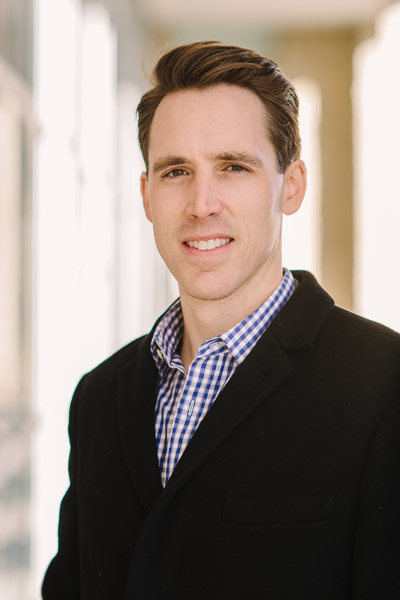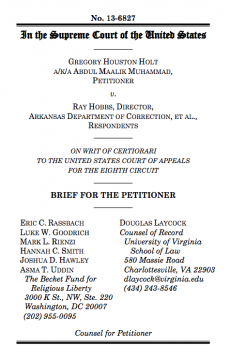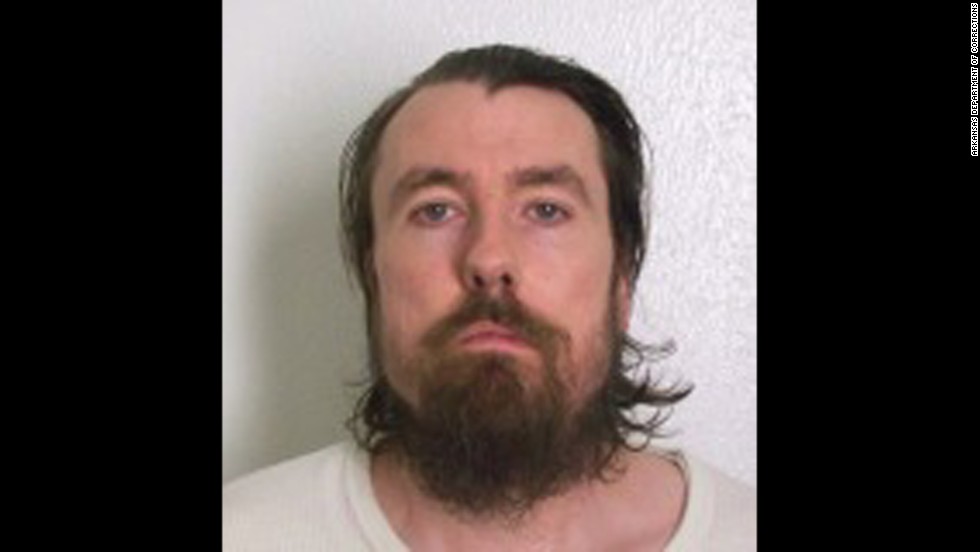JEFFERSON CITY, Mo. – Earlier this year University of Missouri professor and candidate for Attorney General Josh Hawley’s record of “arguing” cases before the Supreme Court was questioned when it came to light that he was only recently admitted to practice before the Supreme Court earlier this year.

In the end, Hawley’s name was placed on a brief sent to the court along with several other attorneys in the Burwell vs. Hobby Lobby case. Hawley has claimed he argued the case before the court, and the Becket Fund of which he is of senior counsel for has steadfastly backed up his claims that he was deeply involved.
In the exact same manner, Hawley’s name is also on a brief submitted by Becket Fund attorneys in case of Holt v. Hobbs. A case in which the Becket Fund helped Gregory Holt, a.k.a. Abdul Maalik Muhammad, sue Arkansas law enforcement so that he could grow his beard in accordance to his Muslim religious beliefs. The brief listing Hawley is on the SCOTUS Blog, the blog of the Supreme Court of the United States.
The Arkansas Department of Corrections claimed that the prisoners of any religious faith were not allowed to grow beards due to their being able to quickly and dramatically alter their appearance were they to escape or be able to conceal contraband. Muhammad was in prison after being convicted of stabbing his girlfriend in the chest and throat, as well as threatening to kidnap President Bush’s daughters. He described himself as an “American Terrorist” and threatened a “deadly jihad” on court officials and witnesses “if it went south.”
However, in response to a story by The Missouri Times noting that Hawley’s name is on the brief in the Muhammad case – in the exact same manner it was in Hobby Lobby case – both the Becket Fund and the Hawley campaign state that the brief was filed with the U.S. Supreme Court incorrectly and, in this case, Hawley was not involved.
“Joshua Hawley was not involved in Holt v. Hobbs,” said Daniel Hartman of the Hawley campaign. “It was a case for which his name was erroneously included on the initial petition without his knowledge or permission. His name was not included on subsequent filings. The Becket Fund has provided all applicable documentation to [the Missouri Times] along with a statement to this effect.”

The Becket Fund backed up the campaign’s claims distancing Hawley from the organization’s work on behalf of the self described “American terrorist.”
“Josh Hawley has served as co-counsel on two Supreme Court cases: Hosanna-Tabor v. EEOC (2012) and Burwell v. Hobby Lobby (2014),” said Melinda Skea of the Becket Fund. “He was not involved in Holt v. Hobbs (2015) and was erroneously listed on the first legal brief for the case.”
Skea provided links to the Becket Fund website, where Hawley has been removed as of counsel. He remains on the SCOTUS Blog’s brief.
Hawley has previously stated that he has been to the Supreme Court twice and won. Hawley claims the cases where he won by working on briefs submitted to the court were are Hosanna-Tabor v. EEOC (2012) and Burwell v. Hobby Lobby (2014).
Former chairman of the House Judiciary committee Stan Cox questioned the professionalism of such a move.
“It’s a lawyer’s responsibility to be careful what they put their names on,” said Cox, R-Sedalia. “As a lawyer, you must exercise great care where and what your name is on, especially in the highest court of the land.”
His name is displayed on briefs in all three cases. Hawley was admitted to practice before the Supreme Court May 26, 2015.
Some Missouri attorneys were quick to question such a mistake on a legal document filed with the highest court in the land.
“Submitting a brief to the United States Supreme Court, of any court for that matter, is a very important matter, and I can’t imagine another attorney would sign a brief including another attorney’s name showing them as associated counsel if he hadn’t cleared that with them.” Rep. Joe Don McGaugh, R-Carrolton, also an attorney, said.
Others were more skeptical of the claimed clerical error.
“There is no way [the Becket Fund] put his name on the front page of a legal brief filed with the United States Supreme Court without his permission.” said attorney Rep. Jay Barnes, R-Jefferson City. “That’s not credible.”
The Becket Fund is yet to return calls or emails to answer whether or not the firm will be correcting their year-old filings with the U.S. Supreme Court.
Whether Hawley worked on the case of the self-proclaimed terrorist as the Becket Fund submitted to the court or had nothing to do with the case as the organization now claims will be of particular interest as one of the hottest issues among conservative activist are the resettling of Muslim Syrian refugees in Missouri.
However, the Becket Fund’s website lists Hawley as senior counsel for the past four years, and some may question his leadership role with the organization that sided with Islamic religious practices over Arkansas law enforcement.

Ultimately, Muhammad and the Becket Fund were successful and the court ruled Muhammad’s religious rights exceeded the Arkansas law enforcement’s public safety concerns. Muhammad is serving a life sentence at Varner Supermax Unit.
Lower courts had referred to corrections, who held concerns that beards could be used to hide dangerous contraband that could be used to harm themselves, other inmates, and break other prison rules.
“When it comes to making prison policies, the stakes are high; lives can be lost if the wrong decision is made,” wrote respondents. “ADC takes religious freedom seriously, but it takes seriously its paramount interests in safety and security, too. It is against this backdrop that this Court has consistently taken a pragmatic, deferential approach in defining what it means to enjoy a constitutional right to freely exercise one’s religion within the confines of prison walls.
The Becket Fund argued that prisons cannot “arbitrarily” ban beards, saying they have caused zero security issues in the 43 states that allow beards to be grown. The fund also pleaded that we lose “human dignity” “if we say that bureaucrats can arbitrarily restrict religious liberty in prison.”
Arkansas’ Department of Correction’s policy from 1998 prohibits all facial hair except for a short mustache, excluding those with a documentation of a skin condition requiring facial hair be grown, and has no religious exemption.
Arkansas State Attorney General Leslie Rutledge and her office were disappointed with the January opinion, issuing a statement:
We are glad, however, that the Court emphasized that prisons are dangerous places and courts should not blind themselves to the fact that the analysis [under the act] is conducted in the prison setting. Our office will provide whatever legal advice the Arkansas Department of Correction may seek from us going forward.
More information on the case can be found on the SCOTUSBlog.
This story has been updated several times. Hawley has stated he was listed on a U.S. Supreme Court brief in error and the Beckett Fund as confirmed this to The Missouri Times that Hawley was not involved in the case and the organization made an error in their filing.
Rachael Herndon was the editor at The Missouri Times and also produced This Week in Missouri Politics, published Missouri Times Magazine, and co-hosted the #MoLeg podcast. She joined The Missouri Times in 2014, returning to political reporting after working as a campaign and legislative staffer.
Rachael studied at the University of Missouri – Columbia. She lives in Jefferson City with her husband, Brandon, and their two children.







